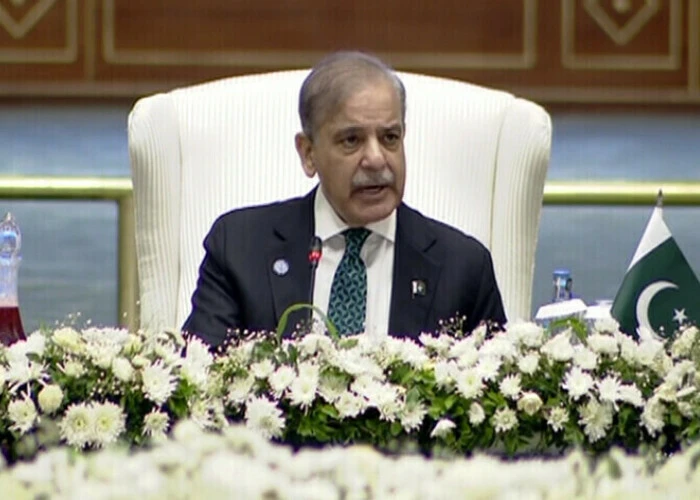Prime Minister Shehbaz Sharif revealed that 22.8 million children in Pakistan, aged between 5 and 16, remain out of school. A significant portion of these children are girls, raising concerns about gender disparity in education.
The prime minister shared these figures while addressing education ministers and officials from Muslim countries. They were attending the two-day International Conference on Girls’ Education in Muslim Communities: Challenges and Opportunities in Islamabad.
International Conference on Girls’ Education Kicks Off
The conference gathered education representatives from 47 countries, including Turkiye, Somalia, Kurdistan, Malaysia, and Maldives. Around 150 delegates attended to discuss barriers to girls’ education and propose actionable solutions.
PM Shehbaz expressed optimism that the event would strengthen collective efforts to promote girls’ education in Muslim communities. He thanked the participating countries for their collaboration and support.
Islamic Teachings Stress Importance of Female Education
During his speech, the prime minister emphasized that Islamic teachings and the Holy Prophet’s (Peace Be Upon Him) guidance highlight the significance of female education. He called for united efforts to overcome challenges in this area.
He also announced the formation of a national committee on education reforms. This body is coordinating with provincial authorities to improve access to education.
Education Reforms in Pakistan
PM Shehbaz highlighted several initiatives taken by his government to improve girls’ education. The Daanish schools, established to provide quality education in underprivileged rural areas for children, are now being expanded to far-flung regions.
Through the Youth Program, the government is offering scholarships, vocational training, and other opportunities to create jobs and ensure a brighter future.
Deputy Prime Minister and Finance Minister Ishaq Dar added that education reforms align with the national budget and funding goals.
Malala Yousafzai Joins the Conference
Nobel laureate Malala Yousafzai participated in the conference. She expressed her joy at returning to Pakistan and attending the summit with her parents.
Malala’s presence highlighted the global significance of girls’ education. She reiterated the importance of ensuring equitable access for all, especially in Muslim countries.
Read More: Pakistan and China Commit to Advancing CPEC 2.0
Challenges and Solutions Discussed
PM Shehbaz underscored that the literacy rate for Pakistani women is only 49%. He noted that denying education to girls silences their voices, deprives them of choices, and limits their potential.
He called on the Muslim world to address cultural barriers that hinder female education. He stressed the need for scalable and sustainable solutions to ensure progress in this critical area.
Gratitude from International Delegates
International delegates thanked Pakistan for hosting the conference and prioritizing girls’ education. They praised the government’s initiative to unite Muslim countries for a shared cause.
Education Minister Khalid Maqbool Siddiqui acknowledged the absence of Afghan representatives. He said the invitation had been extended to Kabul but no response was received.
Empowering Girls for a Brighter Future
PM Shehbaz concluded by emphasizing the transformative potential of girls’ education. He said educated women could uplift their families and nations while enriching the global economy.
“We owe it to our mothers, sisters, and daughters to respect their rights and fulfill their dreams,” the prime minister stated.
Follow Day News on Google News, Instagram, YouTube, Facebook, Whats App, and TikTok for latest updates
